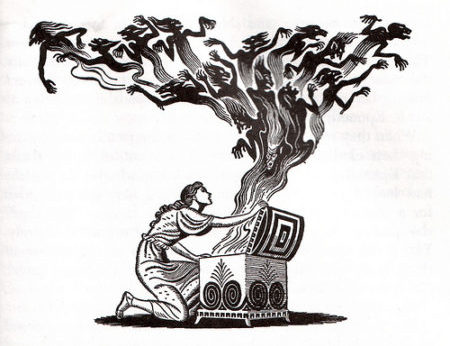O my fellow citizens, each one of you carries on your shoulders not only the burden of doing well for the sake of your own country, but the burden of doing well and of seeing that this nation does well for the sake of mankind.
Theodore Roosevelt, The New Nationalism, August 31, 1910
The measures outlined by President Trump to control the spread of the coronavirus at his March 16 news conference certainly are drastic and disruptive. However, a recent article on the medium.com website (https://medium.com/@tomaspueyo/coronavirus-act-today-or-people-will-die-f4d3d9cd99ca) presented both a statistically comprehensive and horrifying prediction of the public health crisis we may be facing as soon as April if we do not stem the tide of COVID-19 cases. As of today, there are 6496 confirmed cases with 112 deaths. The number of cases are thus matching the hyperbolic increase that the article predicted.
This crisis challenges not only each of us personally, but also the democratic model that inspired the world from the days of the American Revolution. As Americans, we need to pull together and help our country triumph over this challenge and show how a free people can unify to defeat it. In addition to the precautions announced on March 16, here are some other things to consider.
The article warns that our current health care infrastructure may quickly be overwhelmed by serious COVID-19 cases. To close this gap, people who are otherwise healthy should consider making themselves available to volunteer at hospitals and other facilities to assist health care professionals. Another alternative is to provide child care for health care workers whose children are at home alone due to school cancellations or extended work hours. You could also become a delivery driver helping to deliver food to mild home bound COVID-19 sufferers. Employers should support such volunteerism from those currently working from home and universities should encourage students to participate. Churches, state and local authorities could help by establishing easily-accessible on-line lists of potential volunteers. Hopefully, we will have distributed enough tests by then to clear those volunteers. In any case, each of us will have to evaluate our ability to positively contribute to the response.
In his book Democracy in America, the French author Alexis de Tocqueville marveled at the unique spirit of volunteerism he saw in his travels around the country. China is attempting to hide the early mistakes of its response by touting the later success of its heavy-handed totalitarian controls. They hope to use this to promote their form of government as a model for the world. In fact, they engaged in a four-month coverup of the outbreak because, like most dictators, they are inherently afraid of the truth. This cost thousands of Chinese lives and delayed an effective world response. We must counter Chinese propaganda by showing that a free nation like America can be demonstrably more successful in dealing with such a crisis. Now more than ever, the future of our American values and model of government is up to each of us.

